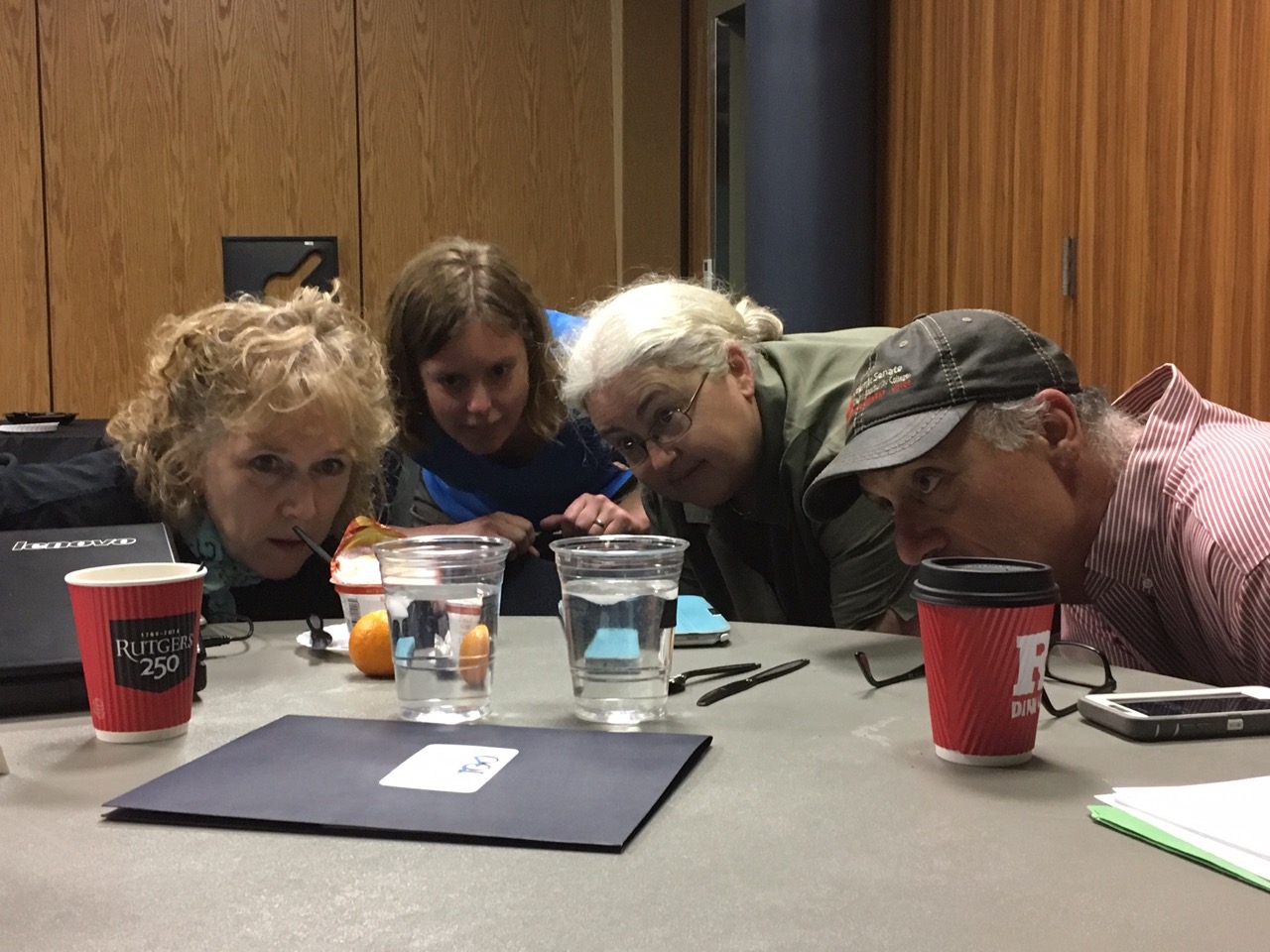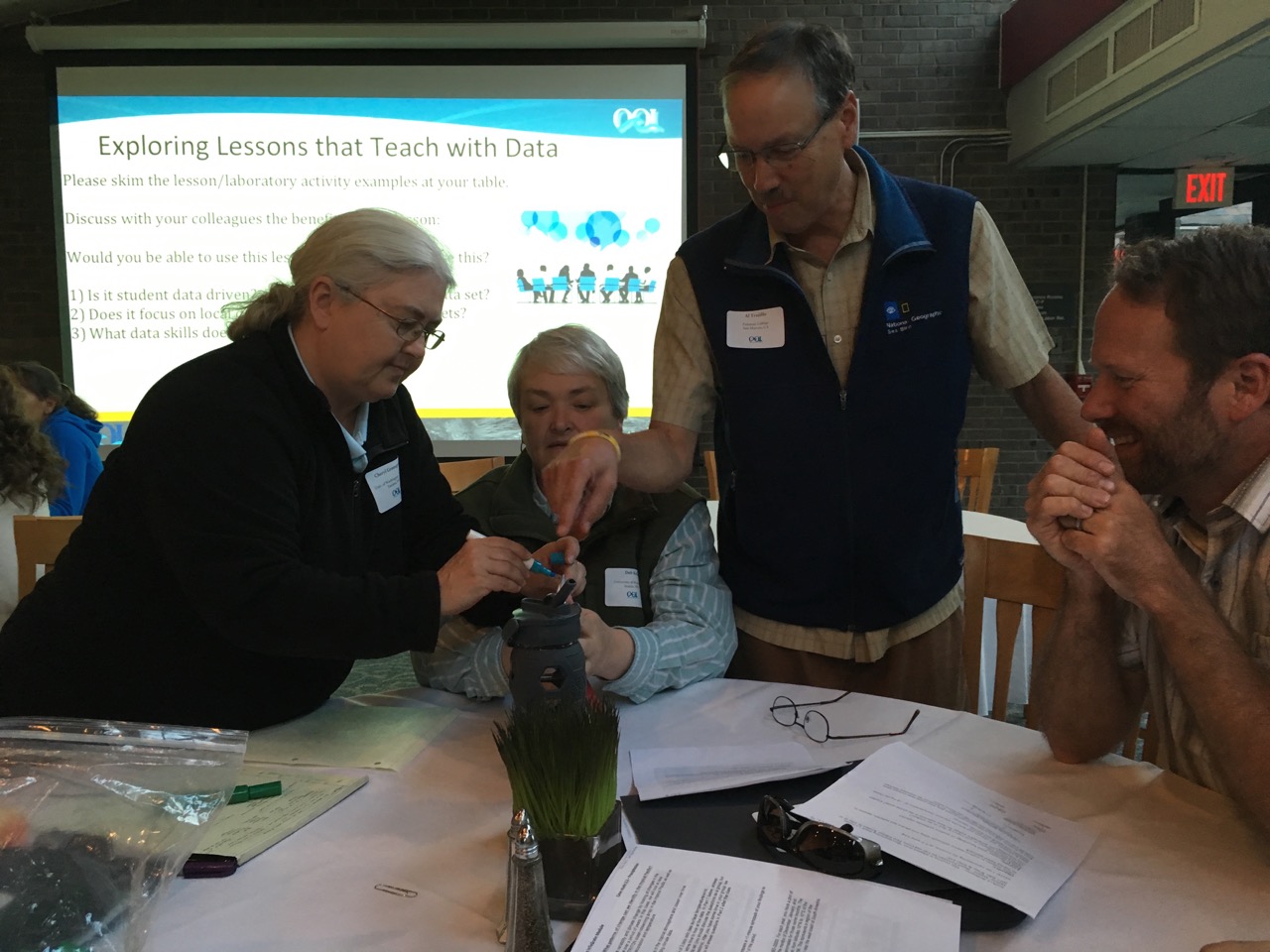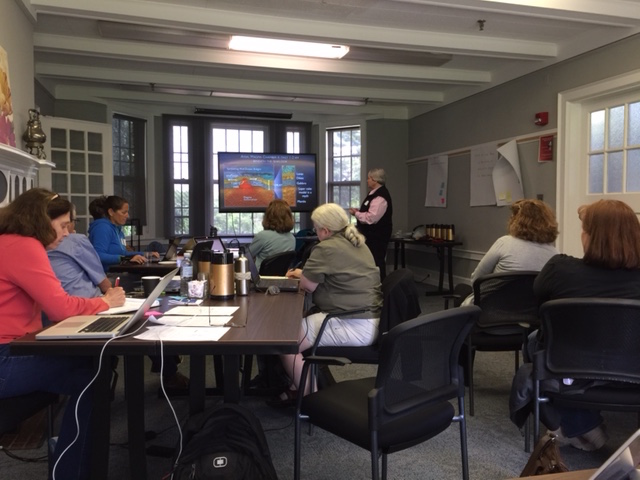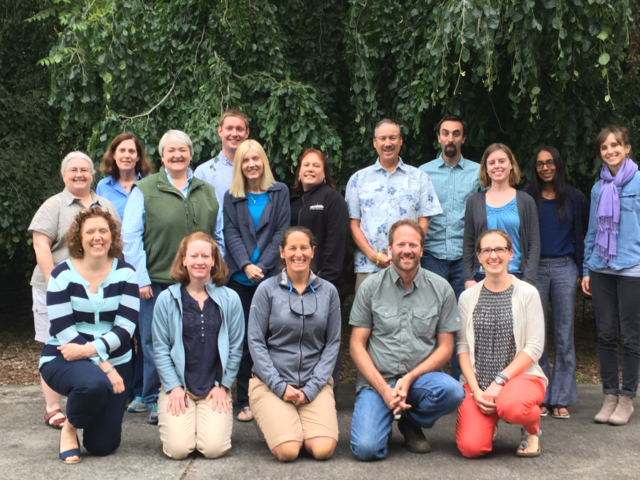Using Big Data in Teaching Undergraduates Using the OOI
May 19-21, 2017 and June 2-4, 2017 at Rutgers University
These days, there are a growing number of research programs that collect high volumes of scientific data using advanced technologies, especially in oceanography. One such program is the National Science Foundation’s Ocean Observatories Initiative (OOI), which has constructed observational and computer infrastructure that provides continuous scientific measurement of the ocean. For the coming decades, the OOI is designed to advance our ability to understand the natural world through this accumulation of large quantities of scientific data. These data will help us understand complex scientific problems like climate change.
The OOI program has also invested in making the data available to more then just ocean scientists. We have developed a series of web-based software tools that link to the live data being collected by the OOI. Rutgers hosted two Teaching with Data Workshops (New Brunswick, New Jersey, May 19-21, 2017 (chemistry focused), and June 2-4, 2017 (geology focused) in an effort to bring together undergraduate professors, from both community colleges and universities, from ten states to learn the software and explore classroom activities that use OOI data. Our workshop goal was to provide tools that help professors overcome hurdles to using online data in the classroom.
Through these exciting online and authentic data activities, professors can teach core oceanographic concepts such as how salinity varies in the ocean and more about what scientists understand about plate boundaries and earthquake eruptions! The web-based modules are purposely linked to one of the most used textbooks in the United States (The Essentials of Oceanography, Ed 12) providing a framework to enable easy adoption in community college and general university oceanography courses. All twenty professors will be testing these activities in their classrooms in the fall 2017 and spring 2018.
Contributed by Janice McDonnell, Rutgers Univ.




